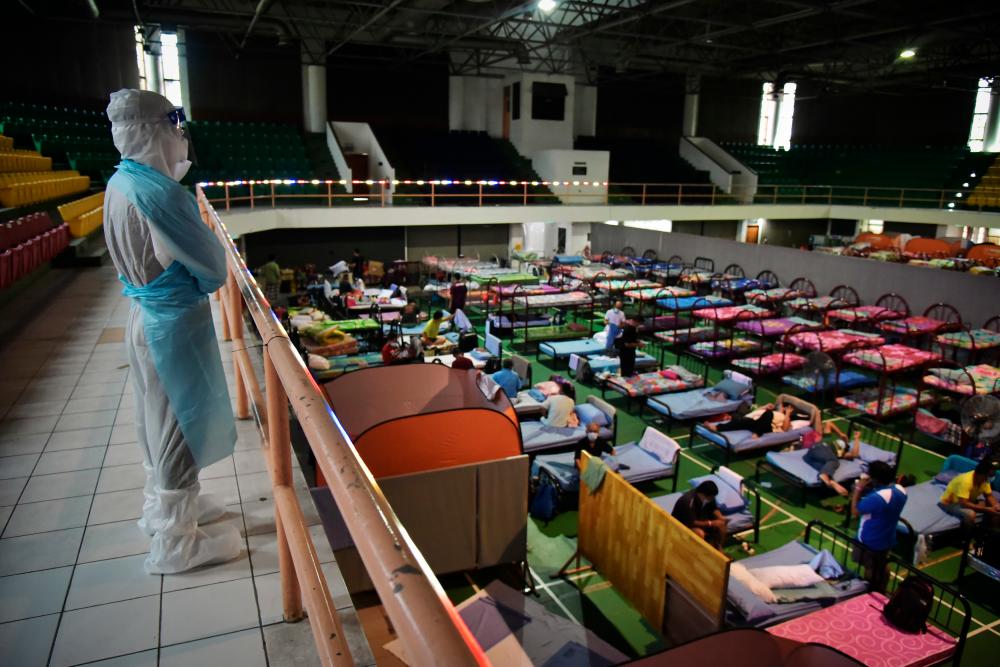IF the state of Covid-19 in Malaysia is frightening, the thought process that is at work in the management of this public health crisis is disturbing.
The numbers show that the authorities have lost their grip over the situation.
The infectivity rate in Malaysia is at 1.2, meaning that if 1,000 individuals are infected this will lead to another 1,200 contracting the disease.
An infectivity rate of 0.8 would be more reassuring since it would indicate a flattening of the curve.
The number of cumulative infections is nearing the 560,000 line and the number of deaths has been climbing exponentially. To date, 2,650 people have died.
It is not a matter of pride that Malaysia reports 205.1 cases per million on a seven-day rolling basis, far exceeding India’s 150.4 cases.
India is a densely populated country, with poor healthcare facilities, allocating something like 2% of its GDP on health.
Although Malaysia’s absolute numbers are far lower, in terms of proportion, Malaysia’s numbers are disgracefully high, even exceeding India’s.
The intensive care units (ICU) are overflowing, healthcare professionals are stretched to their limit, and the morgues have not been as busy.
The vaccination rollout strategy has been inefficient: only 3% of the population has been vaccinated.
Despite the grim scenario, the policy makers revel in muddled thinking.
The government has been ensnared by the slogan that a balance has to be sought between lives and livelihoods.
Given current trends, there is fear that this equation may elude the government.
It certainly would if the rate of infection goes up, because if it does, the number of deaths will rise. Not to mention the immense pressure on hospitals, ICUs and healthcare professionals.
Concern about the economy and believing that livelihoods should be preserved, the government helplessly watches the infection ravage the country.
The government, finding itself constrained by its limited fiscal space, is concerned that any stringent lockdown will result in further demands to extend cash handouts for the disadvantaged and various forms of subsidies for the small and medium enterprises (SMEs).
The SMEs have been clamouring for financial support from the government.
The government has had to capitulate to the demands from manufacturing associations.
Industry representatives who met with the prime minister were reported to have opposed a lockdown, citing impact on the economy and their businesses.
Already faulted for disregarding the norms of democracy by suspending parliament, the government fears that increasing its debt will win it even more disfavour from credit rating agencies.
Bank Negara Malaysia, the country’s central bank, has projected a growth rate of 6%–7.5% for the year.
A cut on this forecast should be acceptable, under the circumstances. After all the country survived a contraction of about 7% in 1998 after the Asian financial crisis, it rose from the ashes to emerge as a vibrant economy.
The situation today is grimmer with the prospect of more deaths and, potentially, added political risk.
Health Director-General Tan Sri Dr Noor Hisham Abdullah has warned on his Twitter post that the country’s daily Covid-19 cases are “following an exponential trend” that could trigger a “vertical surge”.
His statement that “we need to prepare for the worst” can only be a cry of helplessness, adding a personal plea urging people to stay at home.
Judging from Noor Hisham’s comments it may be best to go in for a stricter lockdown. The call to “prepare for the worst” is chilly.
What happens if we prioritise the economy, ignoring the number of infections and deaths?
As prominent intellectual and banker, Tan Sri Munir Majid has remarked in his imitable style, “we don’t want an economy whose main activity is grave-digging”.
Working on faulty metaphors such as the dichotomy between life and livelihood – as if life and livelihood are divorced – will not help.
An economy with rising infection rates cannot breed a vibrant economy.
Dr. Shankaran Nambiar is head of research at the Malaysian Institute of Economic Research. Comments: letters@thesundaily.com










